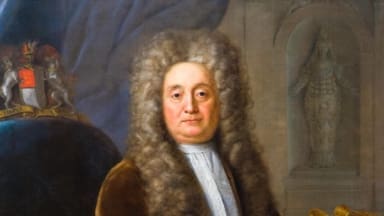
On his death in 1753, the physician and naturalist Sir Hans Sloane (1660–1753) bestowed his vast and unique collection of objects from all over the world to the British nation for preservation and ‘satisfying the desire of the curious’. Sloane was one of the most influential men of early eighteenth-century London. He amassed one of the greatest private collections of plants, animals, antiquities, coins and other curiosities. These items became the founding core of the British Museum and, later, the Natural History Museum.
Sloane was born in 1660 Killyleagh in County Down, Northern Ireland and was reportedly a curious child, fascinated by the plants and animals around him. He studied chemistry at the Worshipful Society of Apothecaries of London and botany at the Chelsea Physic Garden, laying the foundations for his future prosperous career as a physician. In 1683 Sloane went to France, where he studied anatomy, medicine and botany and received his Doctorate of Physics.
The new touring exhibition will, for the first time, bring together a small part of the collection that Sloane assembled, including cultural objects, natural history rarities, books and prints – now held between the British Museum, the British Library and the Natural History Museum. Confronting the complex history behind Sloane’s vast collection, which was financed in part by profits from transatlantic slavery, the touring exhibition will reveal how and why objects from across the world were brought together. It will also explore some of the hidden stories of those Sloane worked with and relied upon for their knowledge and skills, including indigenous and enslaved people, and other collectors, explorers and naturalists around the world.
The exhibition will run from 20 Jan 2024 – 20 Jul 2024, see the British Museum for further information and tour schedule.
